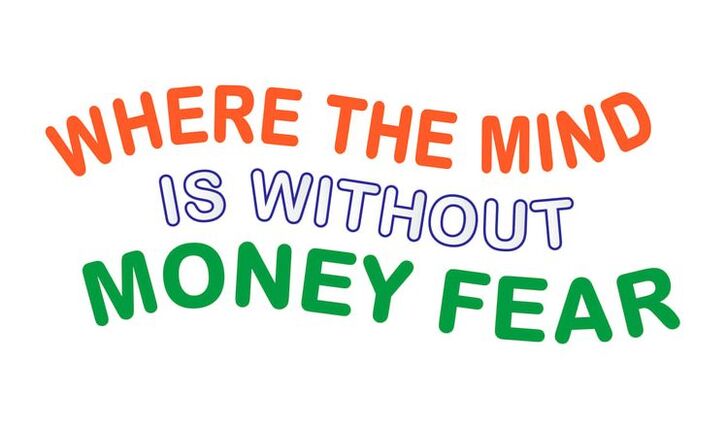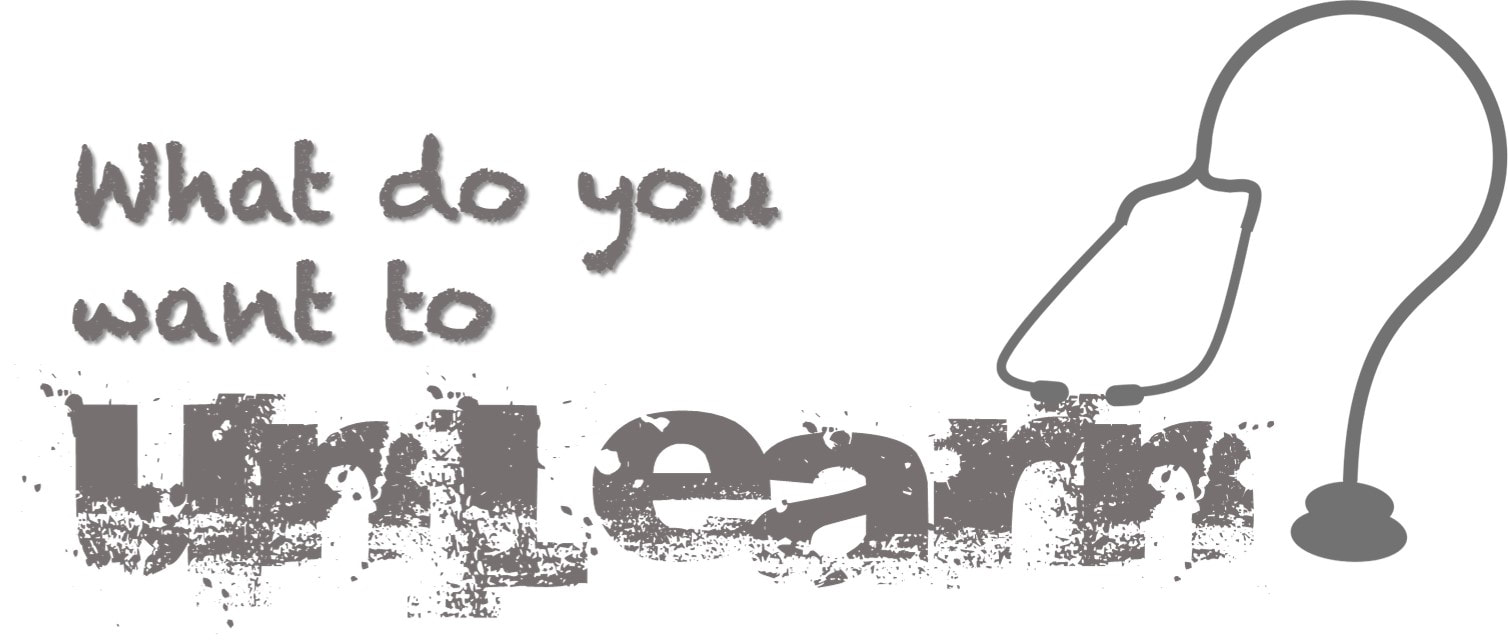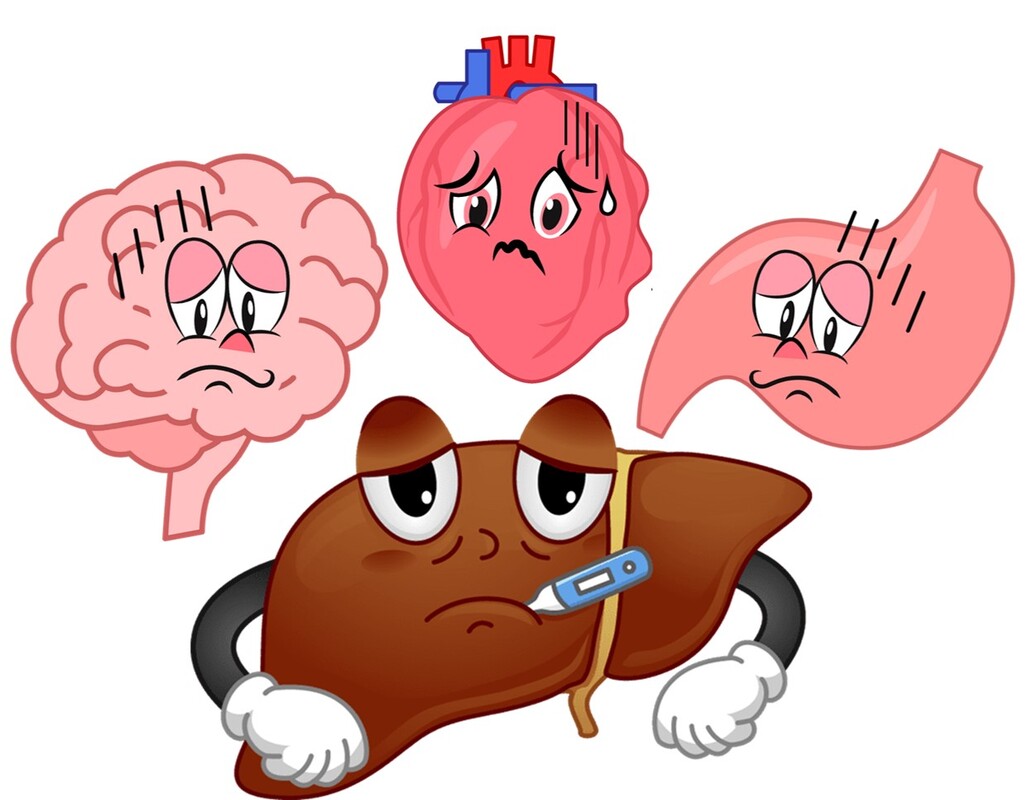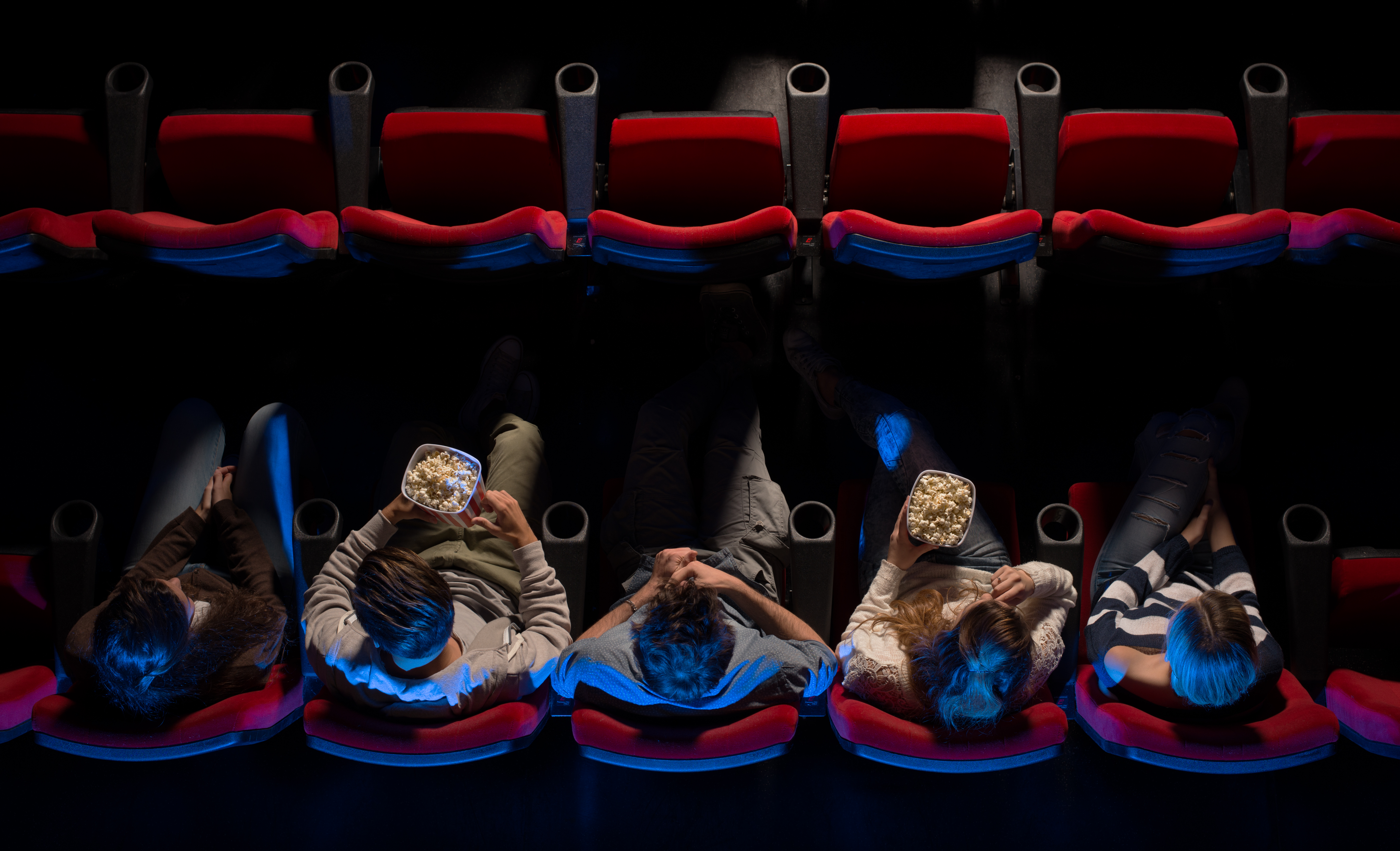|
With change fast and furious as always, how relevant is what your school taught you two or more decades ago? What is it that you have had to or want to unlearn to cope with today? Medscape asked this question recently about medical school. Even before I read the article in full, I shared the same question with a few doctor friends. I expected some finger-wagging about the need to keep up with technology and some frowns at the interfering Dr Google. I also expected doctors in the US and India to come up with different answers. Well, surprise! What Medscape gathered This is the gist of what Medscape gathered.
What my doctor friends said
What have you unlearnt? Yes, apparently robots are wonderful surgeons today. But the patients are not automations. The core message from everywhere appears to be to take time to listen and clasp a hand before the robot takes over.
I am grateful to my doctor friends who were kind enough to share their opinion. Special thanks to Dr Srinagesh Simha, Dr Khurshid Bhalla and Dr Pushkar Khair. So much about the medical profession. What about your profession? Is there something you have unlearnt? Is there something that was taught to you decades ago, but you disagree with today?
2 Comments
This is one of three concepts developed to promote live liver donation. This adopts a mostly animated, light-hearted approach, targeted at the younger audience, that establishes the importance of the organ. It also tells how liver disease affects other organs. Slow zoom from the top of the room to patient in bed. Doctor and a family member talking in hushed tones. Doctor is saying everything is set for the transplant. Family member raises doubts about the safety of the surgery and the health of the donor. Doctor reassures. The zoom continues until the patient’s abdomen region is in close-up. Shift to animation. Liver is seriously ill. Lying on a bed. The other organs are around the bed. They respectfully call the liver “Dada”. Esophagus is looking very sick and bleeding. So is the stomach which has some vessels ready to burst. Blood vessels (semi-transparent with green stuff showing through) are all coiled up. Heart is emotional and crying. The wise brain is looking grim but holding the others together. Esophagus: I think I am going to bleed to death. Stomach: So am I. Heart: (Screams at stomach) Shut up! It’s all because of you. Drinking and eating all that fat rubbish like mad … now see what you have done. Stomach: But what can I do. I just try to digest what is put into me. Blood vessels: We can’t fight these guys anymore. (A green germ leaps out of the blood flow, grinning, and dives back, penguin style.) We are all going to die. Brain: Show some respect. Don’t just think of your own problems. We are with the most important member of our family. So hardworking. Cleans, makes, stores, saves—500 functions. None of us can match that. And when Dada can’t do all that, see what happens to us? Heart: Stop it! You are talking as if Dada will never wake up. Brain: Nah! It is not easy to bring Dada down. Something must be seriously wrong with the genes. Or some nasty virus. Or some terrible drugs. And, yes, the culprit might be alcohol. Just too much for too long. Stomach: But … but …. Brain: Don’t worry. Our Dada will not die. Not that easily. Just now we are waiting for a little piece of another healthy liver. That’s all Dada needs to regrow. Stomach: Really? Brain: Dada is so unselfish. You can give a bit of liver and both the giver and receiver can live. Think of it. “Live” is in Dada’s very name. So unique. None of us has such a name. They must patent his name. Heart: Quiet everyone! It is time for the transplant! Animation blurs and mixes with footage of real operation theatre. Surgery in progress. Fade out. Fade in brightening sky outside the window next to patient. Patient is sitting up, talking to a child about the surgery. Patient: And now the small piece will grow and grow and Dada Liver will be strong again.” Child: Is the liver very important? Patient: Of course! There is no other organ which has the word "live" in its name, right? So, it is very important, and it keeps us alive. Camera zooms into animation again. All organs looking happy and busy. Heart suddenly bends down and plants a kiss on liver. As liver blushes, camera pulls back to reality again. Patient: Did you just tickle me? Child: No, I did not! Patient: I just felt something funny inside. Child: Do you want me to tickle you? As they tickle each other and laugh, the camera pulls back to reveal the rest of the room. Busy nurses and doctors. And a patient on another bed, who joins in the laughter. Possibly the donor? If you are an individual or an organization interested in developing the concepts into films to promote liver donation, will be happy to share these with you. Please get in touch with me.
 Today is the day, like yesterday and like tomorrow, when you will hear a couple of words a lot. This morning, I got this arrestingly misleading, three-colored message from my bank, asking me to move towards independence by taking a loan on my credit card and to increase my credit limit so that I can be free to spend more. How can a loan, or spending more (simply because I can), put me on the path to financial freedom? I went back to one poem that has stayed with me from my school days. The one that is most quoted when the tricolor is in season. Where the mind is without money fear Where the mind is without money fear And the head is held confidently high Where finance knowledge is free and sought Where the world has not been broken up into extremes By birth, faith or narrow money walls Where words speaking needs and dreams Come out from the depth of truth And are heard with true empathy By those who know more and can advise with integrity Where tireless striving stretches its arms towards freedom Where the clear stream of reason has not lost its way Into the dreary desert sand of apps and influencer mirages Where the mind is led forward by simple goals Down the ever-vigilant path of thought and action Into that heaven of finance freedom, my Father, Please let us all awake. Thank you my good friend Lovaii Navlakhi, for being a patient money teacher for so long. And apologies, Rabindranath Tagore, for twisting your precious words to send this message. First published here.
Blame it on Barbenheimer? Or are we being corned into popping more into our mouth just by being in a theatre regardless of what is playing before us?
Sarah Lefebvre, Ph.D., an associate professor of marketing at Murray State University says it’s all in the mood. “When we lower the lighting, we're more relaxed, which usually increases satisfaction in general with your overall experience …. We're gonna probably consume a little more because A, we’re not really paying attention, and B, we don't really care.” Low lighting at restaurants makes you more indulgent with your choices (skip salad, have fries to fill). When it’s dim, foods with just one dimension of taste (sweet or salt, like popcorn) taste better. Add the movie distraction and bring on more popcorn! And you eat more when the air is chilly! Plus, adds this TIME report, there is the matter of close identification with the characters in front of you. Watching Teenage Mutant Ninja Turtles? Keep them pizzas coming! And when those projected finish eating, you reach for something sweet too. Looks like eating more is scripted, no matter what the film is. So how much did you pay for the ticket last time? And for the popcorn? Read the complete report here:The Science Behind Why We Eat so Much at the Movies | Time The founders are selling their stake. Just another business headline. Routine. Why does it open a dam of nostalgia? Nearly 40 years ago, there was a small advertisement in a newspaper. “A reputed pharmaceutical company in Bombay wishes to launch a house journal and is looking for a qualified Journalist/Writer to assume independent responsibility.” This writer had wandered into journalism and after some two years was beginning to learn that there was more to it than writing. So, he applied. It was his first visit to a big company, as a nervous job seeker and not a privileged reporter. As the clock ticked past the scheduled hour of interview, the merry receptionist, her fingers flying over the switchboard, smiled at me, and said, “Sweetheart, I have told the manager. He will call you soon.” It was doubly reassuring, mainly because for the first time someone, a stranger in a strange setting was using such an endearment to address me. A few days after I joined, we were all friends and I asked her how she managed to make every strange visitor a “dear”, a “darling” or a “sweetheart”. It just came naturally to her, she told me. “And what is the harm in making someone comfortable, right? It’s all the family, dear!” Over the next several years, I would enjoy being part of the family which paid me a salary. Of and for the family I had suggested a name for the house journal in an ambitious note: “It is only inevitable that our number grows as we develop. All 1200 of us are per force flung far and wide. In such a big family, separated by long distances, there has to be a medium through which all of us can share our thoughts, pleasures, and plans. Tablet is meant to fulfil that need. This is going to be one tablet which will not be made in a sterile atmosphere. Here we will let our germs of ideas flourish and give free rein to our thoughts.” I might have been sold on “Tablet” but what the employees chose after a poll was a different name. What was gratifying was that very few bothered to remember my name (then and now) but the easiest way to introduce me was by the name of the magazine. The bosses insisted that the magazine must be printed and mailed home. Not simply handed over in the office or factory. It was meant for the family and had to reach the family first—both the English and the Marathi versions. Like the magazine, even its editor had the opportunity to visit several homes. To meet the lab technician who was a passionate collector of stamps. No one knew that the silent guy in stores was also an accomplished dancer until I went to his house and clicked him in action. And did you know that senior delivery guy always on the move on his bicycle, told a little lie that he could ride a cycle just to get that job? But you would pardon him when you also learnt how he had to struggle to save the animals in the laboratory when the whole locality was cut off by floods. Up and down If the editor had started feeling a little too important, the family provided enough moments to keep him grounded. Like the wrong spelling the name of the person, who had played a key role in the golden jubilee celebrations. That too on the front page of the very first issue in four colours. Like being taken to task by a worker on the packing line, who stormed across the corporate floors, probably for the first time after she was employed, to give me an earful. After all I had dared to change a couple of words in her poem published in the latest edition. What would I tell my family, was her primary concern. Like being unceremoniously thrown out of the factory because I had omitted to wear the production floor attire as I went in search of someone I was supposed to interview. The company was kind enough to give me enough mentors—like a seasoned editor from the corporate world and a veteran from the advertising arena. The latter magnanimously let me tweak a couple of words in the script for a prestigious corporate film. Always within As the years passed, the company gained enough confidence to let me loose in other areas—the Chairman’s communications, the annual report, the medical journal and even marketing (“for the largest organ, the strongest antibiotic”).
The greatest privilege was to spend time with the Chief, a name to reckon with in the world of global health. To watch his pen move deftly across the notebook as he explained the structure of a new drug in the making to a team of awed scientists in white aprons. It was as captivating as the delicate drop he loved to execute on the company parking lot that doubled up as a badminton court after working hours. Then, at other times, one could not but share his agitation as he wondered why it was difficult to put patients before patents. The association with the family would continue even after I moved on from the company. I was then a consultant for a hotel under construction in another city. One day a tall man, an old associate (and cricketer) from my employee days, walked in, ducking the bamboos sticking out from the scaffolding. He was now in charge of a new palliative care centre. He explained what palliative care was all about. He wanted a line to describe the centre. “So, what you are doing is beyond curing, right? Care beyond cure?” I suggested. Then would come my initiation into respiratory research in addition to occasional corporate requirements. My status on paper did not matter. After all, you do not stop being a member of the family, just because you have moved away. As many who were my colleagues during those days say, “You may not remain in Cipla, but Cipla will always remain in you.” |
AuthorVijayakumar Kotteri Categories
All
Archives
July 2024
|





 RSS Feed
RSS Feed

